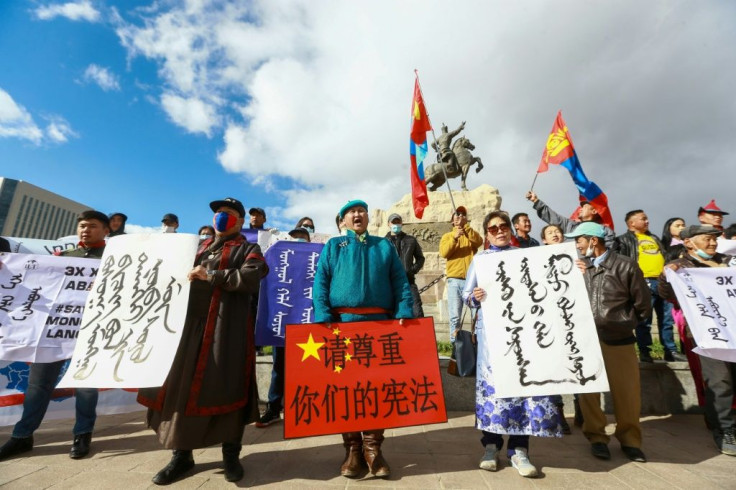Chinese Foreign Minister Visit Prompts Mongolian Protests
Protesters greeted Chinese foreign minister Wang Yi on a visit to Ulaanbaatar on Tuesday, as Mongolians gathered in the capital to speak out against Beijing's controversial language policy in its ethnic minority regions.
The country of Mongolia neighbours China's province of Inner Mongolia, which has seen weeks of protests and education boycotts over a policy change requiring all core subjects at schools to be taught in Mandarin rather than the local language.
China's move follows similar action in Tibet and Xinjiang to assimilate local minorities into the dominant Han population.
As Wang arrived on a diplomatic visit Tuesday, more than a hundred protesters gathered in Ulaanbaatar's main square in traditional Mongolian tunics, shouting: "Let's protect the mother tongue, let's protect our blood brothers."

"I really want our parliament members and president to oppose China's new policy and demand China lets ethnic Mongolians continue learning their native language," Indra Batbileg, a 21-year-old student, told AFP.
Mongolia is strategically situated between Russia and China, but its economy is dependent on mineral exports to its giant southern neighbours.
Mongolian authorities have, however, sought to expand markets -- including strengthening ties with Russia.
On Tuesday China's ambassador in Ulaanator, Chai Wenrui, told a local news website that Wang Yi will sign a series of economic agreements with Mongolia that include donating millions in aid.
© Copyright AFP 2024. All rights reserved.





















